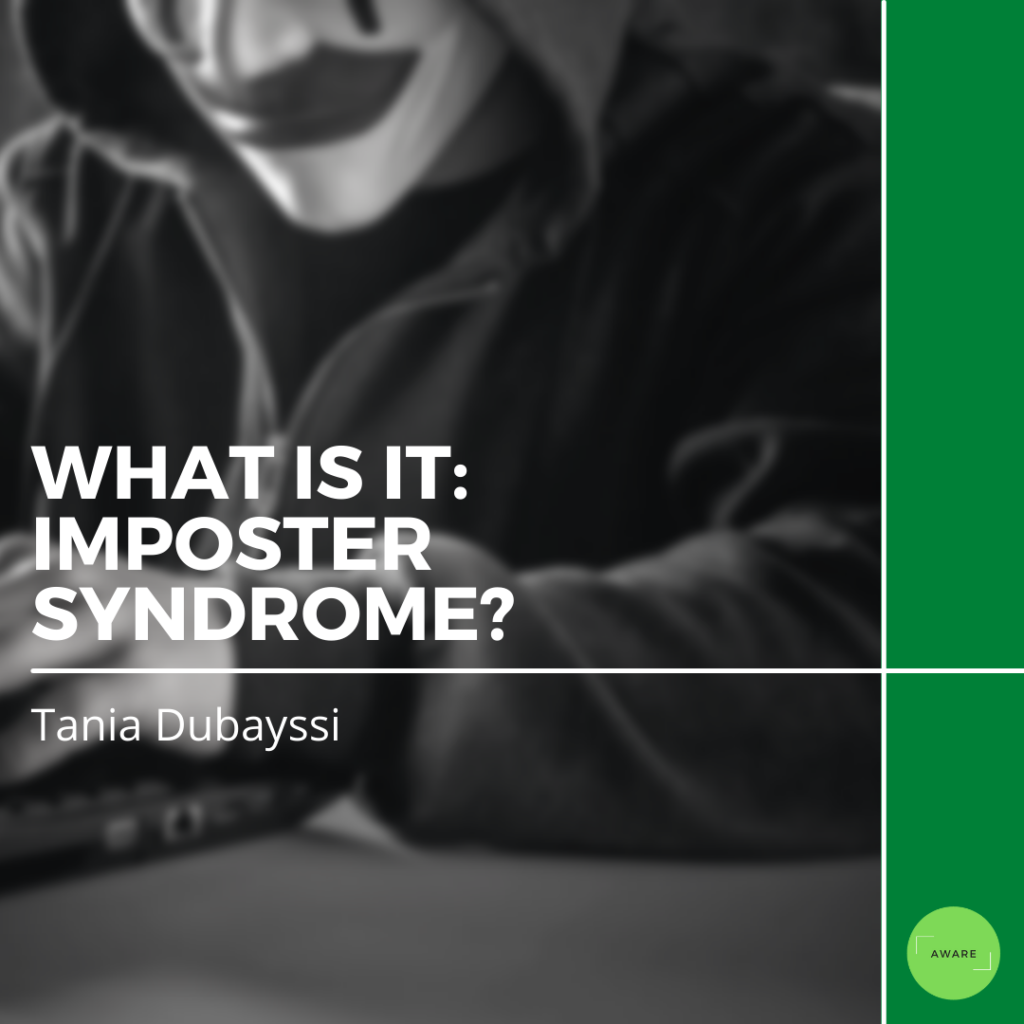Do you ever feel like you do not have a sense of belonging? You feel like nothing makes sense in your life? You feel as though you do not fit in and you do not really know who you are? Imposter syndrome, also known as “perceived fraudulence”, is the feeling of self-doubt and feeling as though you are not good enough regardless of your accomplishments, educational background, or experiences. To avoid feeling this way, you end up pushing yourself to work harder or push yourself towards things out of your comfort zone in order to feel like you are able to fit into your surroundings. This pressure can take a huge toll on your emotional well-being.
Imposter syndrome represents a conflict between yourself and your own perception of the way others perceive you. Even though others may praise your success or hard work, you tend to brush it off as though they are just trying to be “nice”. You often do not believe that you earned those compliments. This constant battle between not being able to believe in what people say tends to come from a place of self-reassurance, where you feel as though the validation you are receiving does not match up to the standard of your work or achievement.
Imposter syndrome is most likely the result of multiple factors including your personality traits, such as being a “perfectionist” or a family trait. Imposter syndrome is rooted from families that characterize achievements to be overly valuable, rather than taking consideration of your mental well-being.
Why Do You Experience Imposter Syndrome?
There is no set answer for imposter syndrome. It is believed to be influenced by your environment. However, the sense of not being able to feel like you belong anywhere is often deeply rooted in your childhood. This sense of belonging begins when you feel as though you try too hard to fit in or if you were being compared to the kid who got the highest grades as a child. Situations like this affect your personality growing up, making you feel as if you were never good enough. People tend to internalize these objectives. “In order to be loved, I need to be good at this,” or “in order to achieve, I have to do this.” Although this constant need to achieve can be tiring, it also makes you feel like you are stuck – stuck in a cycle of not being able to move forward from the idea of “try harder”. It becomes a self-perpetuating cycle.
